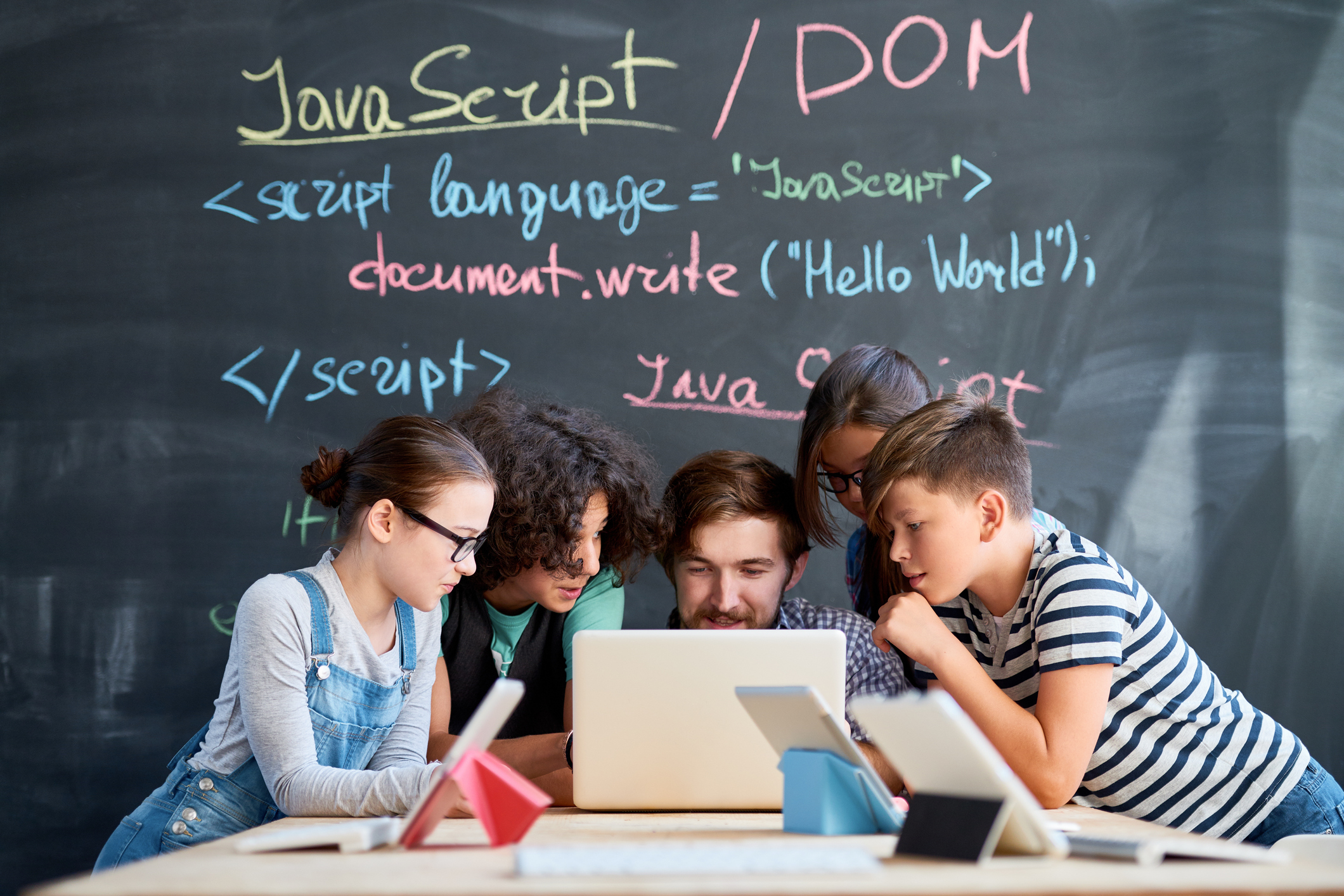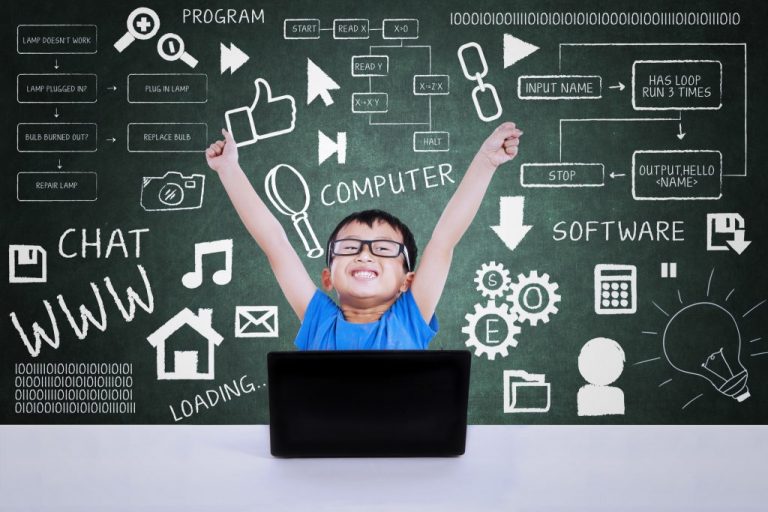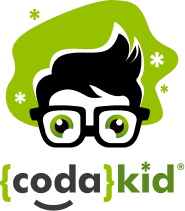Is Computer Coding for Kids a Fad or an Essential New Literacy?
Global interest in kids coding is growing exponentially.
There are a number of reasons for this trend, ranging from parental concerns about the robot apocalypse and its effects on unemployment, to reports of massive job growth in the tech sector.
According to some studies, there will be nearly 1 million unfilled computer programming jobs by the year 2020. The reason? There are simply not enough engineers to fill the demand.
Coding camps and online coding classes from academies such as CodaKid and IDTech are growing quickly, as middle class families are trying their best to make up for a lack of quality computer science options during the school day.
Schools and governments see the trends and are beginning to respond. In the last few years, the UK and Estonia made computer computer science compulsory for K-12 with many other countries soon to follow.
Yet despite a growing body of evidence that computing jobs are here to stay, not everyone is sold on the importance of kids coding. In fact, some are even convinced that it is a passing fancy that resembles the calls for Morse code education in the 1950s.
So where do you stand on the issue? Is computer coding for kids a fad or an essential new literacy?
In this article, we will evaluate both sides of the argument and let you decide.

Alex Usher, who runs the consulting firm Higher Education Strategy, is a naysayer regarding the importance of computer coding for kids.
“Coding is a valuable skill – for maybe 2 per cent of the labor force,” says Usher. “What the rest of us need is digital literacy and proficiency. Being able to write software is not the issue: Rather, it is the ability to apply and use software productively that is the issue.”
Paul Bennett, an educational consultant in Nova Scotia, is also a skeptic. Bennett views coding as just another education fad that wastes both time and money. “Most regular math teachers fear that coding will further erode classroom time for math and do little or nothing to prepare students for true computer programming, AP-level computer science, or a STEM career,” says Bennett.
Other tech experts have taken it yet a step farther comparing calls for computer coding for kids to calls for Morse code education in the 1950s.
Tech expert Donald Clark explained: “This (the push for Morse code education) turned out to be a huge waste of time, as the vast majority of people simply needed to write English that was transcribed by a relatively few number of telegraph operators.”
The Case for Computer Coding for Kids
Some of the most prominent names in the tech community disagree with the arguments above, and instead view computer coding for kids as an essential new literacy as important as math and science.
Mark Zuckerberg, Bills Gates, Elon Musk, and Stephen Hawking fall into this group.
In fact, they they participated in a viral video called “What Most School’s Don’t Teach” which made the case for computer coding for kids.
We have assembled a list of some of the strongest arguments for kids coding’s educational and vocational benefits.
1. Understanding code helps students understand the world
Computing has become involved in nearly every part of our daily lives from social media to Internet to communications to banking.
Computing will become even more widespread in the coming decades as advances Internet of Things (IoT) and robotics are expected to handle many parts of our daily lives including transportation, medicine, cooking, and cleaning.
In the same way that students study economics, chemistry, biology, and physics to better understand the world around them, it is now imperative to learn coding to understand how our modern world works.

2. Computer coding for kids teaches problem solving
Perhaps the greatest learning outcome of a coding education is that it teaches computational thinking.
Coding is the science of taking something large and often intimidating, and turning it into a series of small actions. One step at a time; one line of code at a time.
As Steve Jobs famously stated: “Coding teaches you how to think.”
3. Computer science builds skills in a number of academic areas while building practical skills
Kids coding instruction builds skills in arithmetic, algebra, geometry, physics, applied sciences, and more.
The project based learning approach employed in kids coding classes often allows kids to learn math concepts earlier and in a more engaging format.
At CodaKid, for example, we teach kindergarteners and first graders the concept of radius as they mod explosions using Minecraft’s Java source code. They will ordinarily not see this concepts until 3rd grade.
According to Shopify CEO Tobi Lutke, the argument that we shouldn’t teach computer coding for kids because not everyone will become an engineer should be viewed in the same light as an argument that math isn’t important because kids won’t grow up to be calculators.
4. Learning to program is often easier when the concepts and skills are taught at at early age.
Exposing kids to coding concepts such as Boolean logic, teaching them how to use professional text editors (IDEs), and giving them the sills to see how certain parts of code interact with one another gives this generation of kids a fluency with technology that will give them a leg up.

5. Computer related occupations make up over 60% of projected new job positions in STEM (Science, Technology, Engineering, and Math).
If you can develop a proficiency in computer coding, jobs opportunities in tomorrow’s labor market will be plentiful.
6. Computer programming teaches skills that are instantly relevant in today’s job market.
According to Phil Gartner, Director of Michigan State University’s Employment office: “Students with these (computer science) majors are highly technical and deeply trained so they have a more immediate value to employers,” he says.
“They can apply their knowledge quickly to the workplace, so they can command a higher salary.”
7. Computer engineering jobs rank among the highest-paying for new graduates.
According to Forbes, computer engineering students come in second place, averaging around $63,313 in annual starting pay.
Conclusion
Despite the fact that computer coding for kids is offered in a small number of traditional schools in the US, a Gallup poll indicates that 90% of parents would like computer programming to be taught during the school day.
While most parents and educators recognize that not every student will become a computer programmer, experts see the corollary benefits of a computer science education as strengthening students in a number of key ways that will benefit them in tomorrow’s workplace.
With most nations languishing behind in computer science education, there will be some tremendous advantages for the national economies of those nations that become first movers.
So far in the United States, there has been talk, but very little as far as actual legislation.
So what do you think?
Is computer coding for kids a fad or an essential new literacy? Let us know your thoughts in the comments below!


















